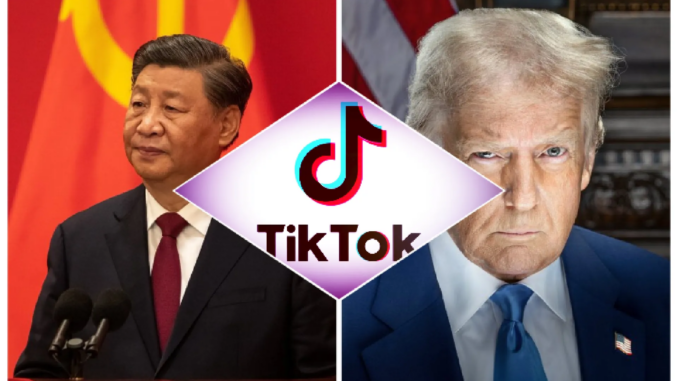
US President Trump Says He’s Open to Cutting Tariffs on China in Exchange for a TikTok Deal

In a surprising turn of events, former U.S. President Donald Trump has indicated that he would consider reducing tariffs on China if it leads to a favorable resolution in the ongoing dispute over TikTok. Speaking at a recent political event, Trump suggested that negotiations surrounding the popular social media platform could serve as leverage for broader trade discussions between Washington and Beijing.
The statement comes amid renewed efforts by U.S. lawmakers to force TikTok’s Chinese parent company, ByteDance, to sell the app’s U.S. operations due to national security concerns. While the Biden administration has continued to scrutinize TikTok, Trump—who previously attempted to ban the app during his presidency—now appears to be open to a compromise that could involve tariff reductions in exchange for a deal on the platform’s ownership.
“We want a fair deal. If China is willing to work with us on TikTok, maybe we can talk about tariffs,” Trump reportedly said, signaling a potential shift in his stance on trade policy.
This unexpected development has sparked debate among policymakers and economists. Some argue that easing tariffs could provide relief for American businesses and consumers, many of whom have been impacted by the trade war initiated during Trump’s presidency. Others, however, warn that linking trade policy to a social media deal could set a dangerous precedent.
China has not yet formally responded to Trump’s remarks, but experts predict that Beijing could view the proposal as an opportunity to negotiate tariff relief while retaining some level of influence over TikTok’s global operations.
As the 2024 U.S. presidential election approaches, Trump’s comments highlight the ongoing complexities of U.S.-China relations and the strategic importance of TikTok in the broader geopolitical landscape. Whether this proposal will gain traction remains uncertain, but it has already added another layer of intrigue to the heated debate over trade and technology between the two superpowers.